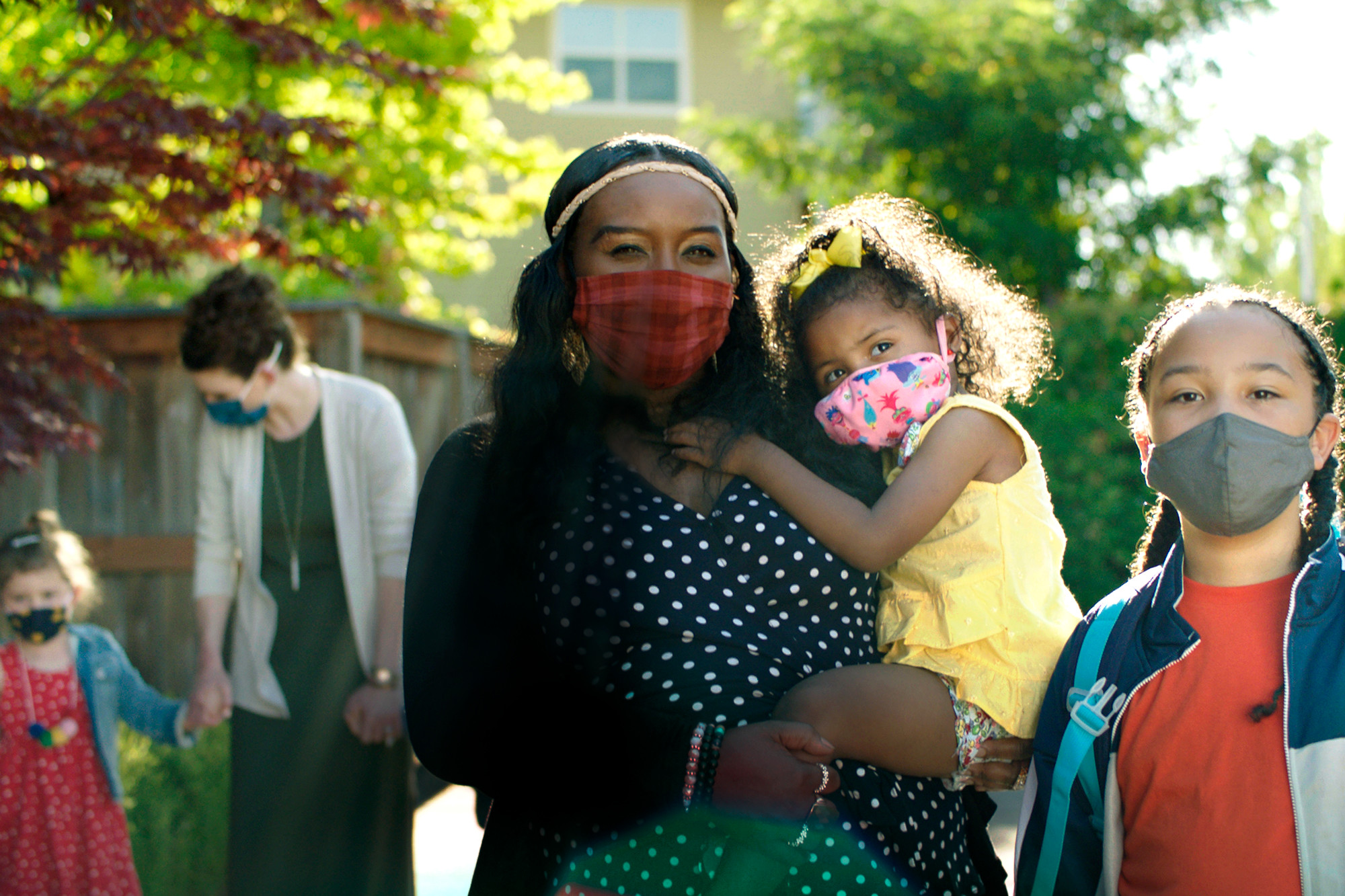Unpacking Back-to-School Feelings

The back-to-school season is on the horizon for families around the country. With that comes a backpack full of emotions for children and parents. Some of these feelings may be expected, while others may be unexpected or surprising in their intensity.
While adults may know how to identify their emotions and express them appropriately, children are still learning these skills. Often, children’s emotions come out in their behaviors. A child who is excited may have trouble sitting still or focusing on the task at hand, while a child who is anxious may throw things or yell at their siblings.
No matter how you and your children feel about the start of a new school year, remember that all feelings are valid, both yours and your children’s. It’s completely understandable (and normal) to experience conflicting emotions about the same aspect of returning to school. You can be both nervous and excited at the thought of your child walking through those school doors and settling down into a classroom with their peers, and so can your child.
As we head into a new school year, here are tips for how you and your children can navigate some of the big emotions you both might feel.
Encourage Excitement
Talk with your child about the things that they are looking forward to when the school year starts, while also encouraging them to share the things that make them sad or concerned. Once you understand how they are feeling, look for or create an opportunity for your child to do more of what they’re enthusiastic about. For example, if your child is eager to be around other children, you could arrange extra opportunities for them to be around friends or look into school clubs or activities your child could join so they have even more opportunities to spend time with their friends or to make new friends. While focusing on the positive, remember to dismiss or minimize concerns or simply tell your child that it will all just be okay.
Address Anxiety & Fear
It’s perfectly normal to be anxious about new experiences and new people. No matter what your child is anxious or fearful about, talk about it with them. The first step to addressing an emotion, especially the tough ones, is to identify and validate it. Then you and your child can work together to find appropriate ways to address those fears. If your child is worried about reconnecting with or making new friends, you might try role playing to help your child practice or use puppets (socks on the hands might do) to act out meeting someone for the first time.
Be sure to address your own concerns too. If you’re worried about keeping your child and family safe and healthy, learn about the school’s health and safety plan and talk through the safety protocols with your child so that they are comfortable with them, including practicing some “what if” scenarios. Be sure to seek support from your child’s school too. School counselors often have access to a variety of child-focused support tools and community networks.
Embrace Relief
Returning to any semblance of normalcy may have you and your children jumping for joy. Going back to school is a sign of the world opening up again, of being able to do more of the things you like to do. Embrace that sense of relief and don’t second guess yourself or make a list of caveats.
Acknowledge Grief
In change there is often loss. Many families had to deal with challenging experiences during over the past 18 months. Despite how difficult this time may have been, there were probably also some bright spots for your family such as spending more time together and the opportunity to be more engaged in your child’s life. The thought of going back to “the way things were” may leave you or your child feeling sad about what might be left behind. Take a moment to acknowledge that loss. You can also brainstorm, together, how you might keep some of the things you liked about this past year in your lives, whether that’s a nightly family walk, a weekly game night or a special weekend meal you prepare together.
No matter how you and your child feel, embrace it. The back to school season is a time of new beginnings and your family is in it together. Try to appreciate all of the emotional ups and downs together and celebrate their emotional growth as well as your own. Establishing a habit of checking in on your child’s emotional wellbeing now reassures your child that you’ll be there to support them no matter what this new school year brings.
RELATED STORIES:
Stop Doing These 8 Things for Your Kids This School Year
Books That Will Get Your Child Excited about School
After Reading My Notes from Middle School, This Is What I Want My Daughter to Know
